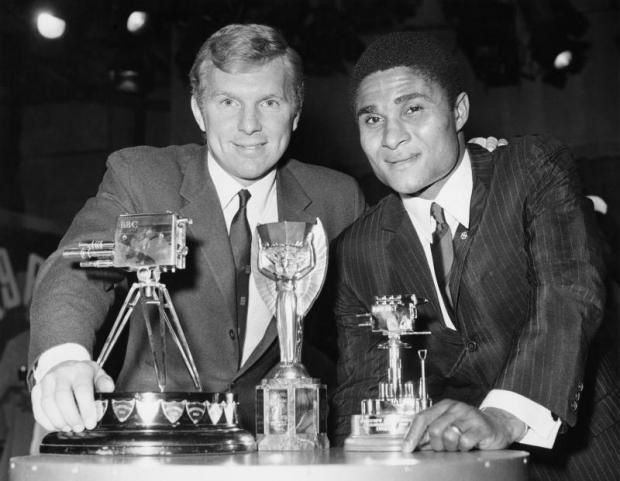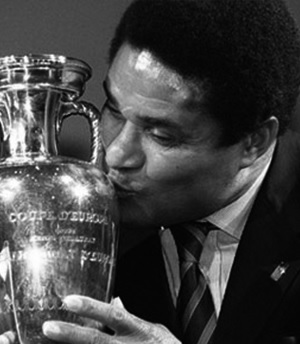026. Eusébio
Eusébio da Silva Ferreira, also known as "The Black Pearl", was born in Lourenco Marques, Mozambique in 1942. He was brought to Portugal in 1961 by Benfica's coach Bela Guttmann who flew down to Africa personally to check Eusébio out after being tipped by Sao Paulo's coach. Guttmann was so impressed with what he saw that he decided to buy Eusébio from his local club for £7,500 straight away.
In one of his first games for Benfica, Eusébio scored a hat-trick against Pelè's Santos. The Black Pearl continued to impress in the European Cup of 1962 where he netted twice against Real Madrid in the Final in the 5-3 win.
Eusébio was simply a one-man-attack; speedy, skillful and powerful not too dependent of supply lines from midfield to be successful. He caused trouble for all defenders and was unstoppable in the Portuguese league where he scored more than a goal per game - 319 in 313 appearances. He helped Benfica win 10 Portuguese league championships and 5 domestic cup titles. On the personal side he was six times top scorer in the Portuguese league and twice Golden Boot winner as top scorer in European football - 1968 and 1973 - and in 1965 he was European Player of the Year (Golden Ball winner).
In 1966 Portugal qualified to the World Cup for their first time. It turned out be some highly successful weeks in England for Eusébio & company. Portugal's #13 managed to show off his class to the world and scored nine goals becoming topscorer in the tournament. In the first round group stage he tore Brazil apart with a memorable performance scoring twice to eliminate the 1958 and 1962 champions.
More success followed even though North Korea led 3-0 at one stage against Portugal in the quarterfinal, Eusébio scored four times to rescue his country in the 5-3 win. The green and red lost to England in the semifinal - Eusébio was in tears after the match - but beat the Soviet Union in the bronze-match to complete a fine tournament. People in England were so impressed by Eusébio's performances that he was immediately added to Madame Tussaud's collection of waxwork.
Unfortunately Eusébio would never play in another World Cup again even though he took part in both the 1970 and 1974 qualifying series. Like many other stars of that era, Eusébio headed out west to America to play in the North American Soccer League towards the end of his career, he made appearances for a number of clubs in Mexico and USA. Eusebio retired in 1978 and is widely regarded as one of the greatest strikers in the history of the game.
Eusébio passed away due to heart failure on 5th January 2014, aged 71.
Legendary Football Players: Eusébio

Search My Football Facts & Stats
Web site designed & hosted by Paul Yarden © 2014 at Homestead™
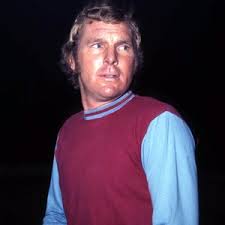
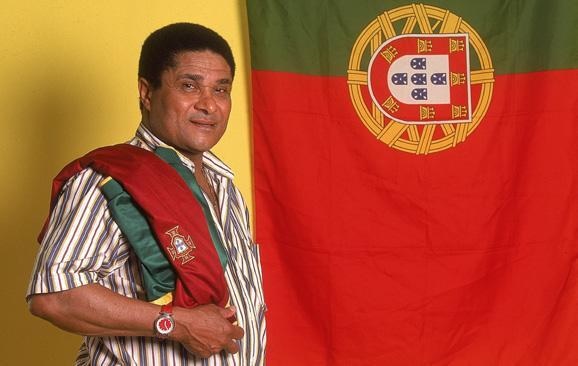
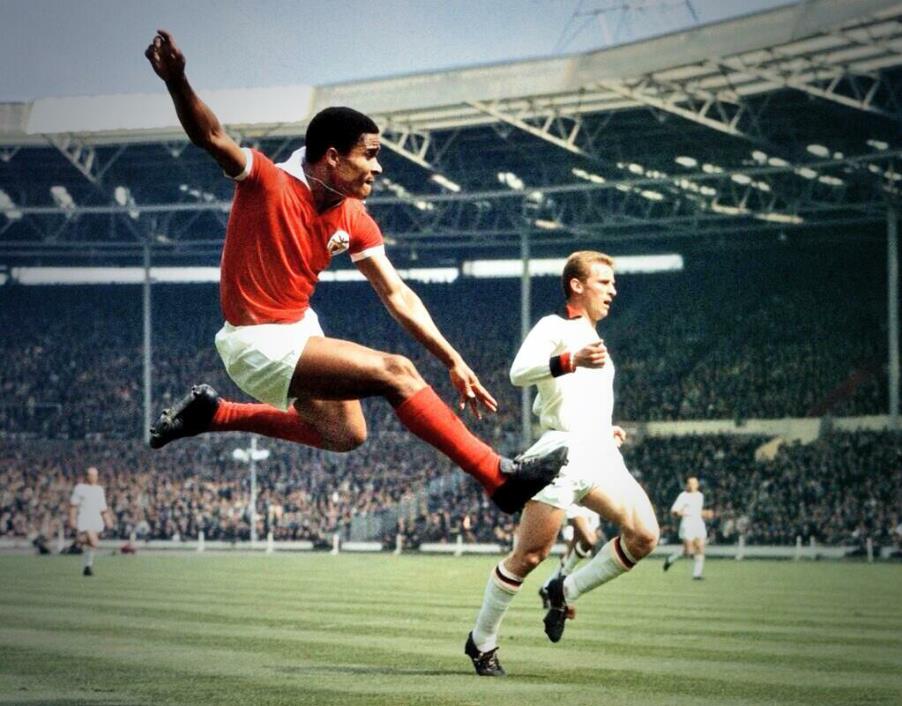
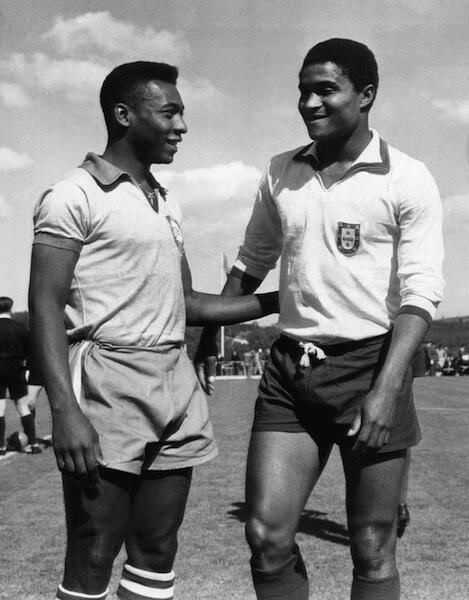
Mourning the death of Eusébio, a brother to me.
-Pelé, 5th January 2014
